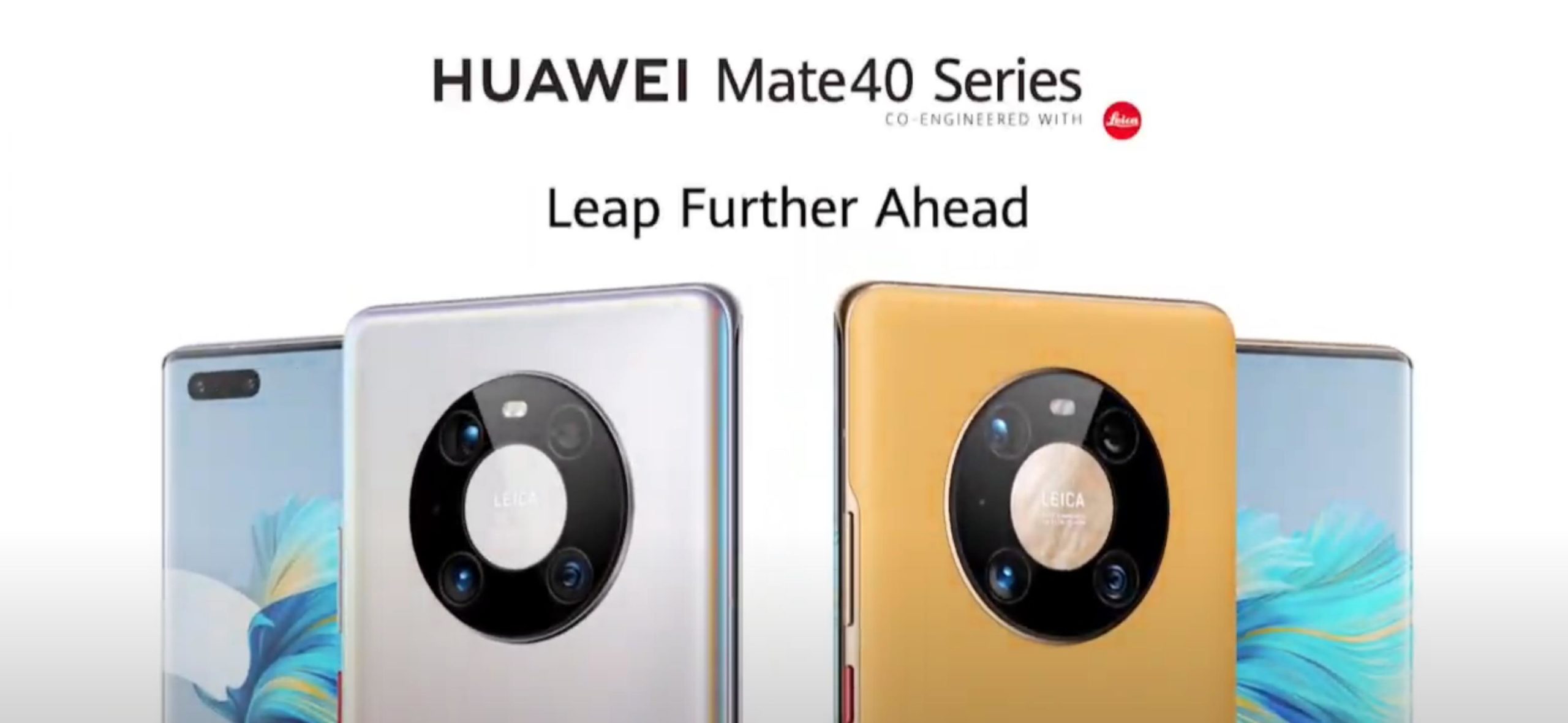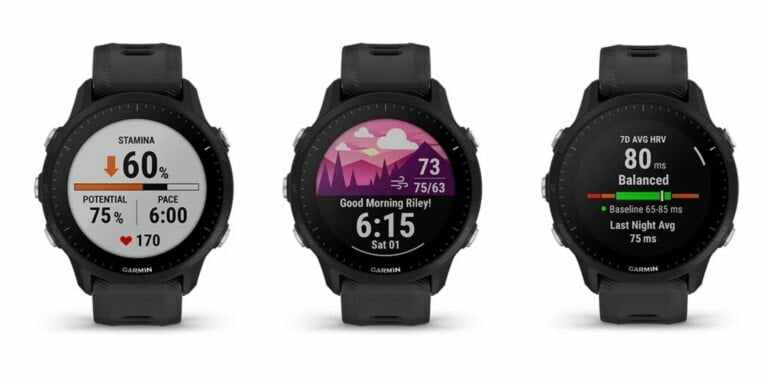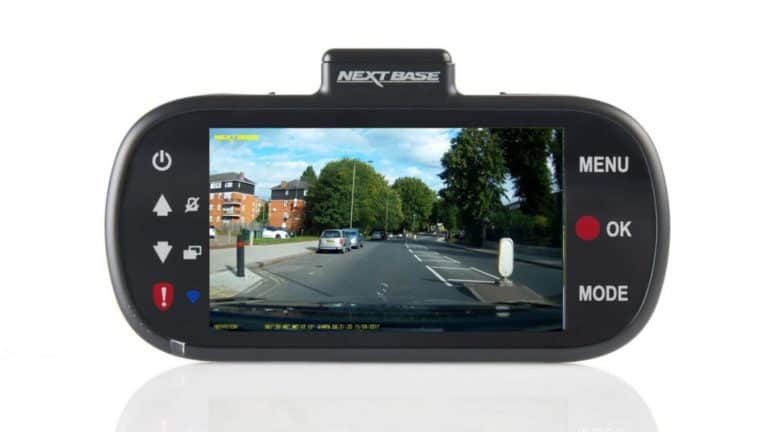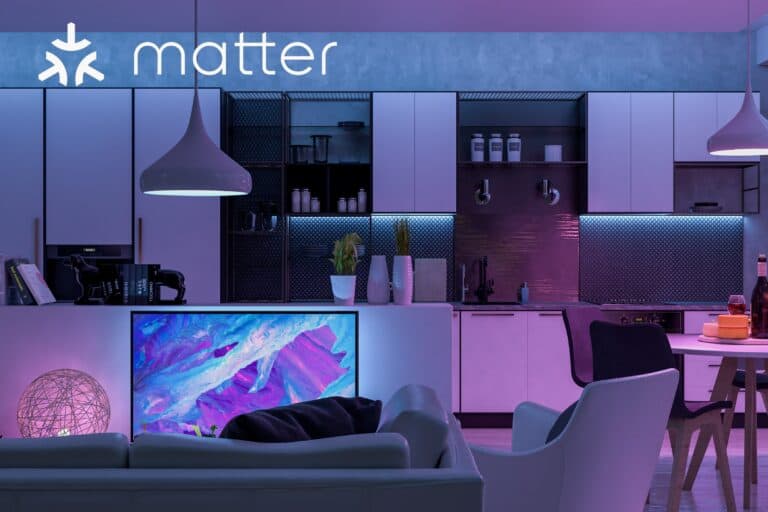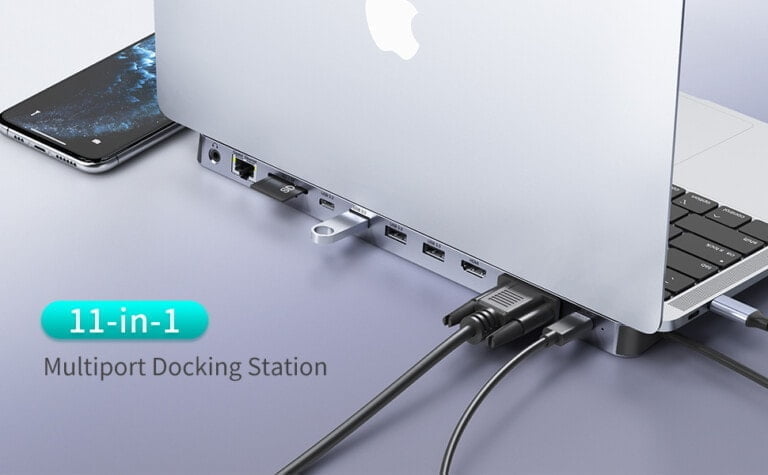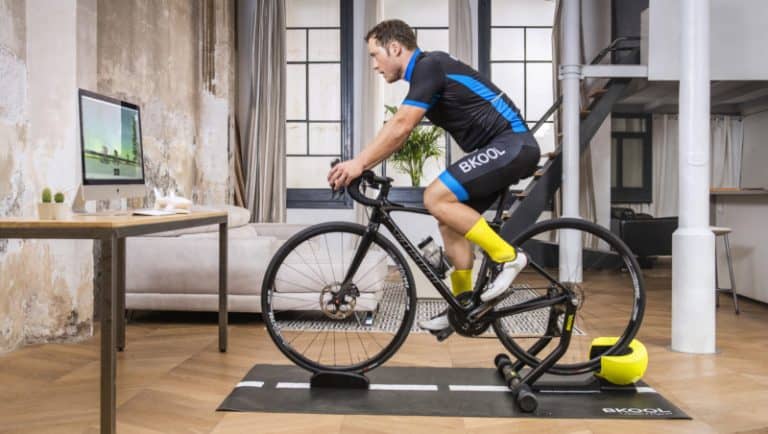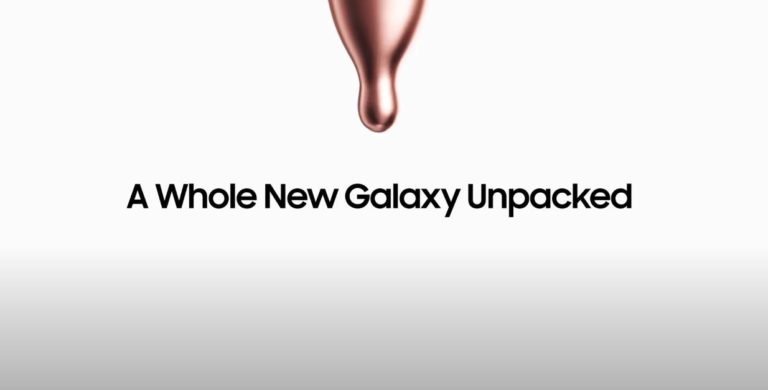Any links to online stores should be assumed to be affiliates. The company or PR agency provides all or most review samples. They have no control over my content, and I provide my honest opinion.
The Huawei Mate 40 Pro has finally been launched, similar to recent years, there is a none-Pro variant, but the UK will not be getting this model.
During our pre-brief, Huawei didn’t reveal much at all about the phone specification. So some of this content is based on leaks and live reporting, I will update it as soon as possible if anything is inaccurate.
Huawei Mate 40 Pro Specification
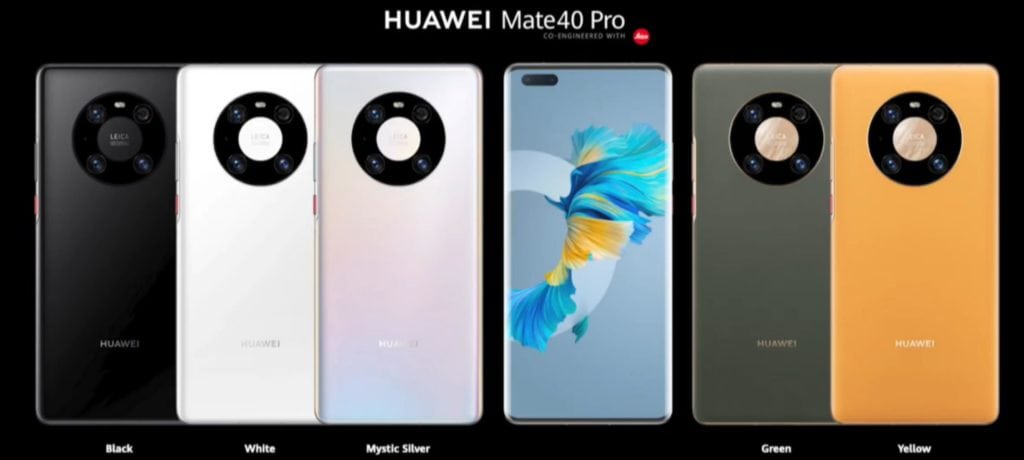
- Display: 6.76 inches AMOLED 90Hz 2772 x 1344
- Chipset: Kirin 9000 5G (5 nm)
- RAM: 8GB / 12GB
- Storage: 256GB / 512GB
- Rear Camera:
- 50 MP, f/1.9, 23mm (wide), 1/1.28″, 1.22µm, omnidirectional PDAF, OIS
- 12 MP, f/3.4, 125mm (periscope telephoto), PDAF, OIS, 5x optical zoom
- 20 MP, f/1.8, 18mm (ultrawide), PDAF
- TOF 3D, (depth)
- Front Camera:
- 13 MP, f/2.4, (wide)
- TOF 3D, (depth/biometrics sensor)
- Battery: 4400mAh with 66W charging and 50W wireless
- Other Features:
- Stereo speakers
- IP68
HiSilicon Kirin 9000 Specification vs Qualcomm Snapdragon 865 Plus
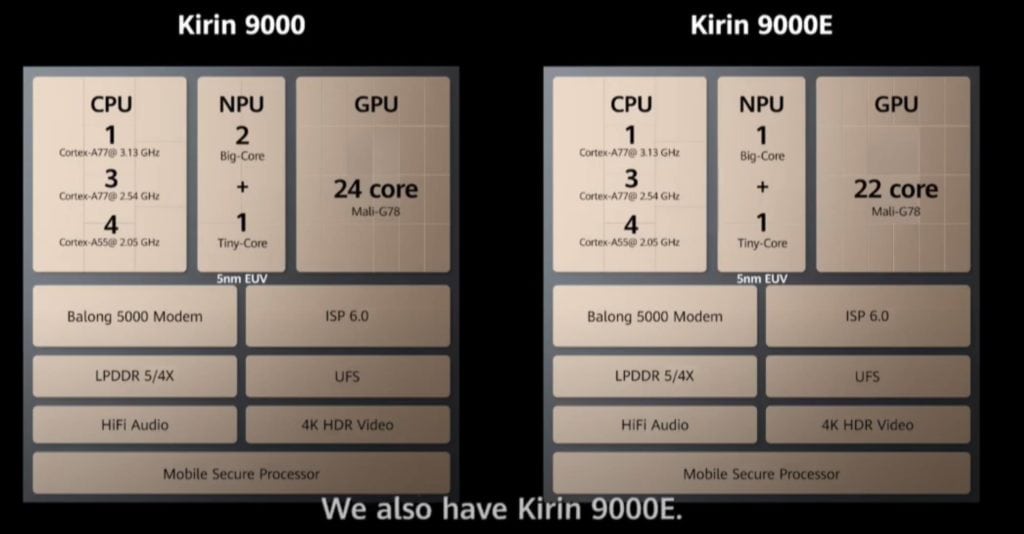
- Fabrication Process: 5nm
- CPU:Octa-core (1×3.13 GHz Cortex-A77 & 3×2.54 GHz Cortex-A77 & 4×2.04 GHz Cortex-A55)
- GPU: Mali-G78 MP24
Huawei has used an interesting spec for their latest flagship Kirin 9000 chipset, with it coming out so early in the year they have used the older Cortex A77 CPU, whereas Qualcomm and Samsung will be using the Cortex-A78.
Huawei has adopted a Qualcomm-esque design this year switch from the 2x2x4 design on the Kirin 990 5G to a 1x3x4 design.
The main core will only be clocked slightly higher than the existing Snapdragon 865 Plus SoC, but the middle cores and little cores are all clocked higher, so the overall CPU performance should be higher than the SD865+.
The GPU is particularly impressive with 24 Mali-G78 cores which is both 2-generations up from the Kirin 990 5G and a 50% increase in the number of cores.
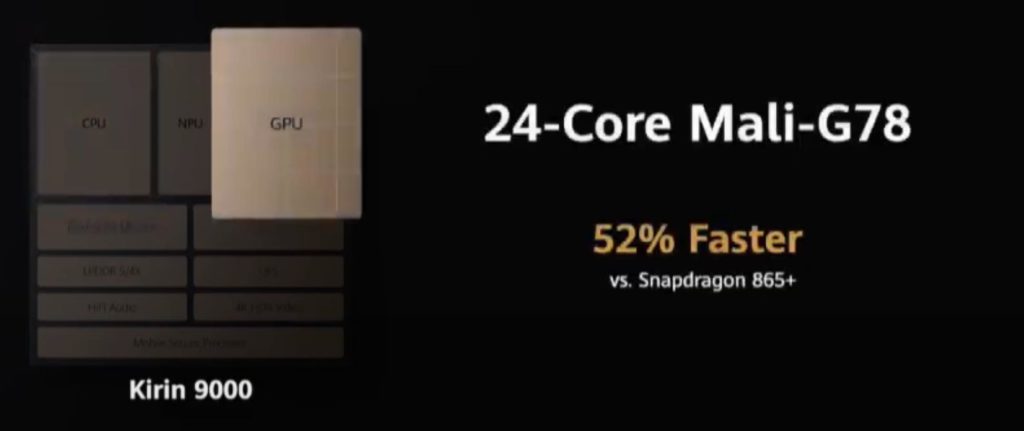
It is reported that Huawei have had to keep the frequency a little lower than normal to be able to maintain power efficiency, but it is safe to say this will be no slouch for any GPU intensive application.
Qualcomm use their own Adreno 600 GPU so comparing specifications is hard, however, leaked benchmarks indicate that the Kirin will be around 8% ahead of Qualcomm in Antutu.
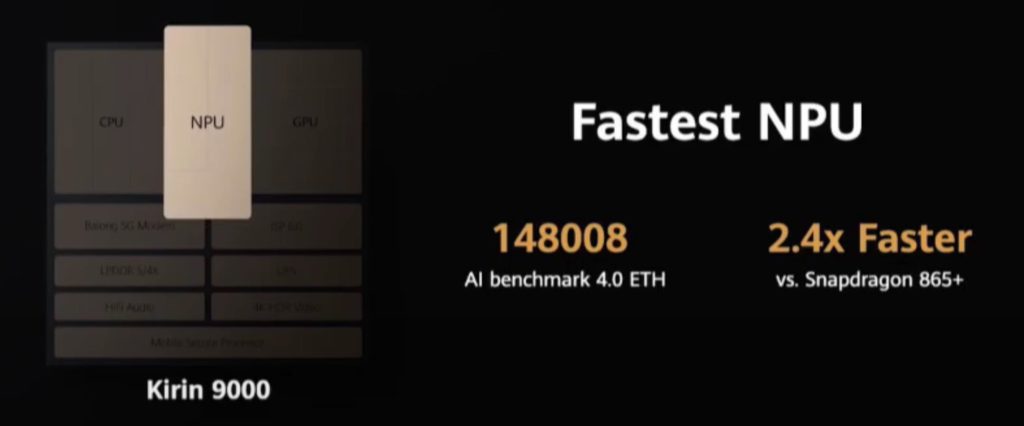
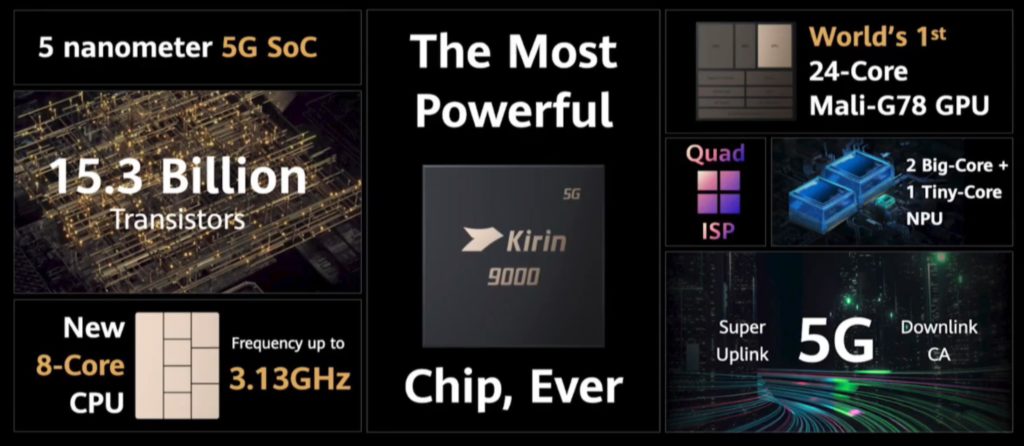
HiSilicon Kirin 9000E
At the time of writing, this is nothing but a leak, it is possible a lower-spec variant of the HiSilicon Kirin 9000 will launch and this will likely be used on the standard Mate 30.
Both chipsets should have a 5G integrated modem (unlike last year).
Cameras
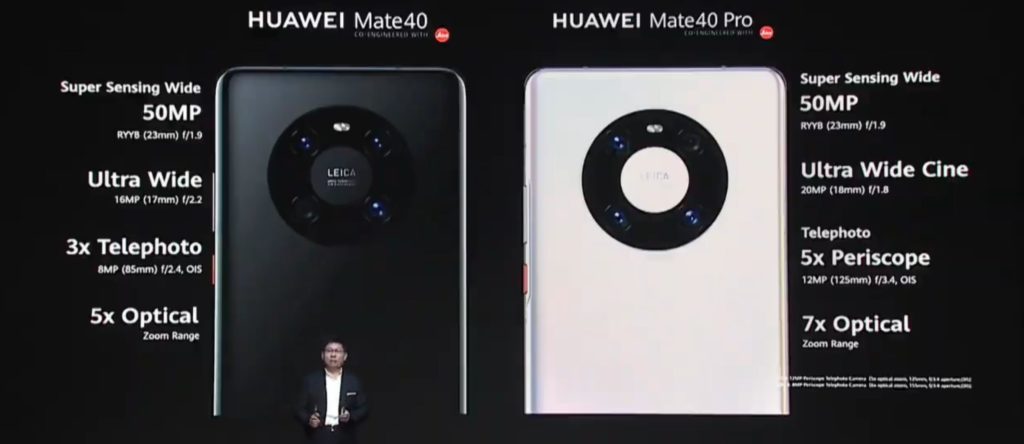
The Mate series is always the phone that introduces the latest chipset, while the Px0 series introduces the latest camera tech.
Therefore it comes as no surprise that the camera spec hasn’t changed much. One change, based on current leaks it seems the ultra-wide lens has dropped from 40MP down to 20MP.
In the pre-brief this was called the 2nd gen Cine Camera, the P40 Pro Cine camera 1/1.54 inch sensor so it is possible there has been some sort of improvement there, I will update this during the event.
[Update] Huawei confirm the ultra wide angle has a massive sensor size with zero distortion.
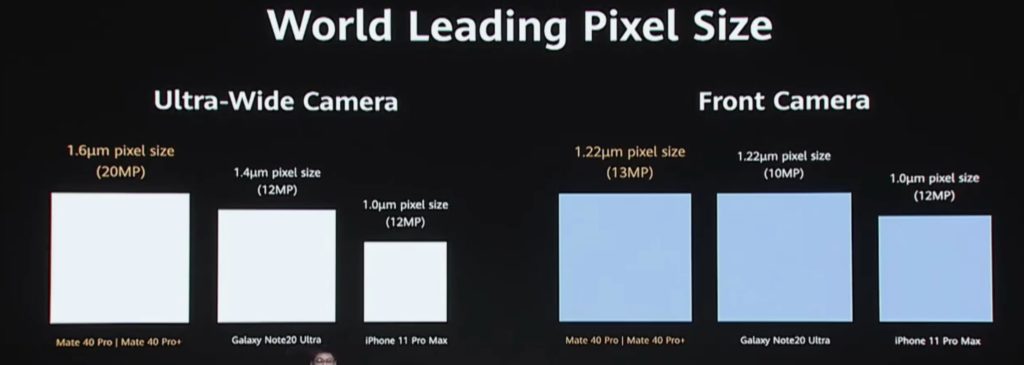
Display – No more waterfall display, and we get the volume buttons back.
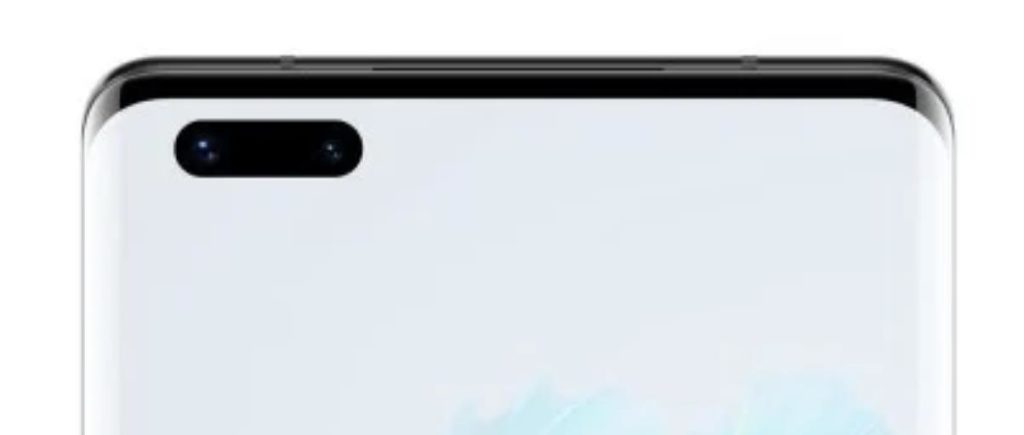
This display has a weird resolution due to the curve around the sides, however this is less aggressive than the waterfall display of the Mate 30 Pro. While the previous version looked incredible, I was always sceptical about how usable it was.
With the Mate 40 Pro using a less aggressive display curve, the phone has been able to re-introduce the volume buttons. For people that liked the virtual buttons on the older model, you can still use this function, and this can be used on the left side too.
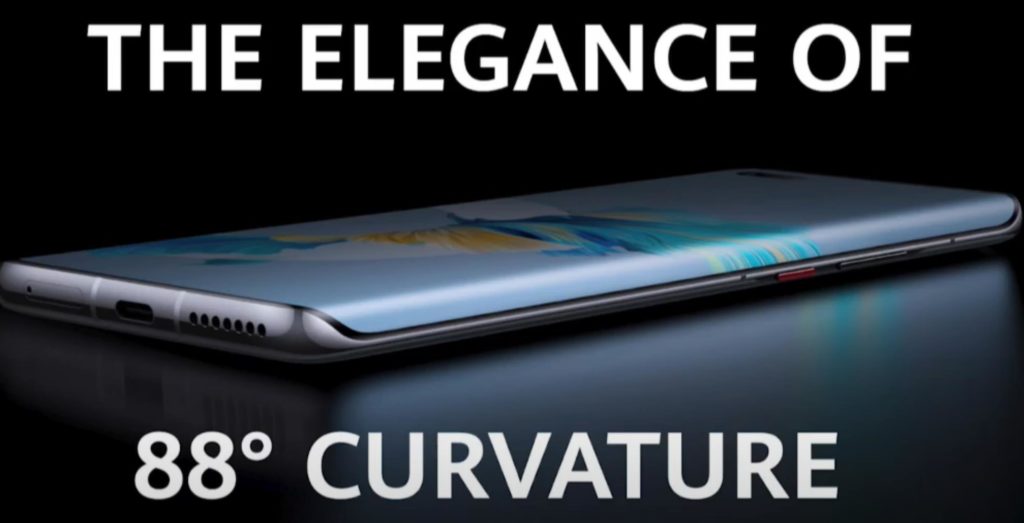
Based on the images I have been shown it is hard to tell how different the display is compared to the current Huawei P40 Pro, however that has a 2640 x 1200 resolution, and leaked image seem to indicate it wraps around a little further than the P40. It also looks like there is more of a top and bottom bezel which then eliminates the curves corner edges of the display.
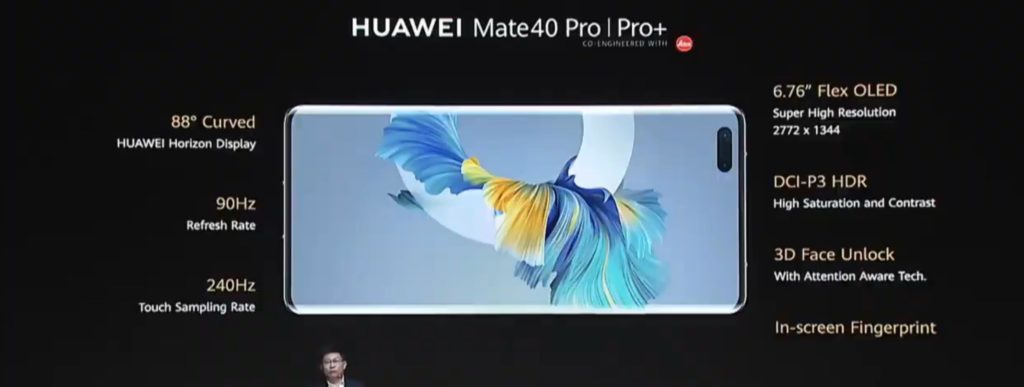
Huawei has ditched the huge notch from the older Mate models and adopted the dual punch-hole design from the P40 Pro. However, Huawei indicated that the new Mate 30 Pro has all the functionality of the older 3-camera models by having the selfie camera work for both selfies and gestures, then the 3D depth sensor continues to improve biometric security.
Features
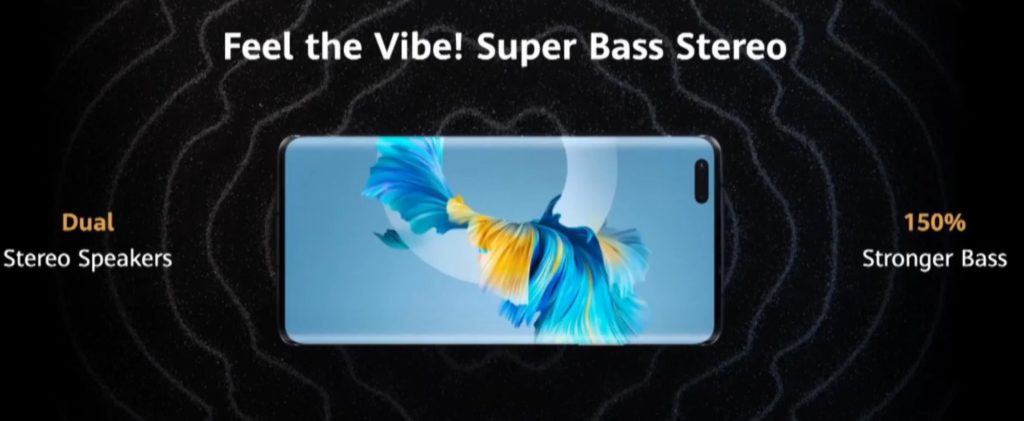
New Gestures
With the primary selfie camera functioning as a gesture-based camera, Huawei has expanded the AI gestures to include:
- Left and right gesture for flipping through photo album or book
- Press gesture to answer a call hands-free or to pause/play music
- Hover gesture to turn on the display
EoD – Eyes on Display
Huawei phones have always continued to amaze me with their battery performance, even though this doesn’t have the largest battery going, it will likely outclass most competing options.
The new Eyes on Display function will help improve battery performance further, by only switching on the display when it sees your eyes looking at it.
Multi-screen Collaboration 3.0
Huawei continues to heavily focus on full integration with their ecosystem as part of their 1+8+N strategy, where your phone is the central device in your life, and all the products interact seamlessly with each other.
Therefore they have continued to improve the multi-screen collaboration function of their laptops with new functions such as being able to chat while watching online video.
Google, Android, and Huawei Mobile Services
At this point, I think we all know that Huawei phones will not be shipping with any Google services due to the ongoing political issues with the US. However, just to confirm, there is no Google. This will, however, continue to use Android in the form of EMUI 11 based on Android 10.
Apps and core services will be handled by Huawei Mobile Services. The App Gallery and Petal Search have improved considerably in the past year or so, but there are still gaps, and sideloading apps via Petal Search is merely a stopgap measure while App Gallery becomes a viable alternative to Play Store.
Huawei tried to paint a pretty picture about App Gallery, claiming that their app store is more curated than Google Play Store, but I wouldn’t say my experience reflects this. There is a lot of crap on the Play Store, but it is not hard to find what you want, the same can’t always be said about App Gallery.
The App Gallery numbers are improving quickly though, they have doubled the numbers in the past year, going from 900k apps to 1.8million. App Gallery does have an annoying habit of suggesting installs when you load it up, or display an advert before loading the home page. However, a new version of App Gallery is launching with a cleaner interface, so hopefully, these will be addressed.
In defence of App Gallery, when you have apps installed from it, the whole update process is flawless, and it even gives you update suggestions for apps not on the App Gallery.
Petal Maps
Perhaps the most interesting thing about my pre-briefing was the launch of Petal Maps, while not particularly exciting, the lack of a Google Maps alternative within the Huawei ecosystem has been one of my major gripes with it.
I assume Petal Maps is based on TomTom’s mapping data, the two brands signed a deal back in January, though HERE WeGo (formally Nokia) has recently landed on the App Gallery and it is possible this could be behind Petal Maps.
Harmony OS
My pre-briefing made no mention of Harmony OS, however, it was recently revealed the P40 Pro would be one of the first phones that will be able to use this new OS from Huawei. So it is likely the Mate 40 and any other up and coming Huawei phone will be able to use it when available.
Price and Availability
Amazon Germany got a little trigger happy on the publish button and revealed the price to be €1,200 with availability from the 9th of November.
I would expect UK pricing to be £1099
I am James, a UK-based tech enthusiast and the Editor and Owner of Mighty Gadget, which I’ve proudly run since 2007. Passionate about all things technology, my expertise spans from computers and networking to mobile, wearables, and smart home devices.
As a fitness fanatic who loves running and cycling, I also have a keen interest in fitness-related technology, and I take every opportunity to cover this niche on my blog. My diverse interests allow me to bring a unique perspective to tech blogging, merging lifestyle, fitness, and the latest tech trends.
In my academic pursuits, I earned a BSc in Information Systems Design from UCLAN, before advancing my learning with a Master’s Degree in Computing. This advanced study also included Cisco CCNA accreditation, further demonstrating my commitment to understanding and staying ahead of the technology curve.
I’m proud to share that Vuelio has consistently ranked Mighty Gadget as one of the top technology blogs in the UK. With my dedication to technology and drive to share my insights, I aim to continue providing my readers with engaging and informative content.

